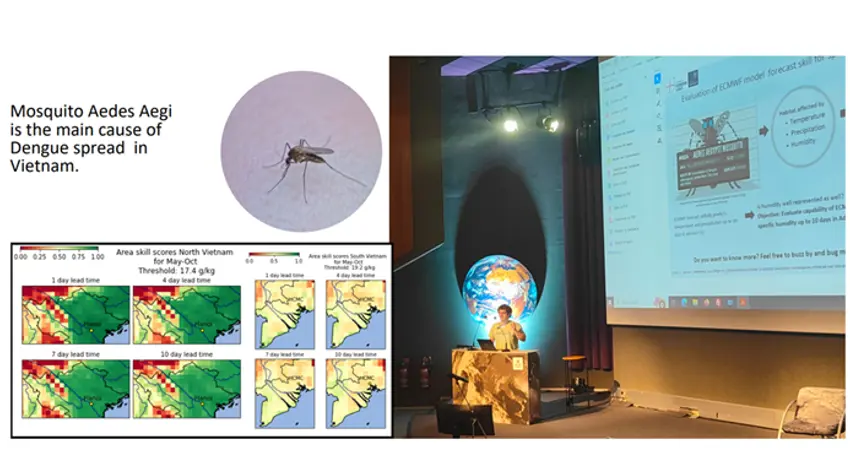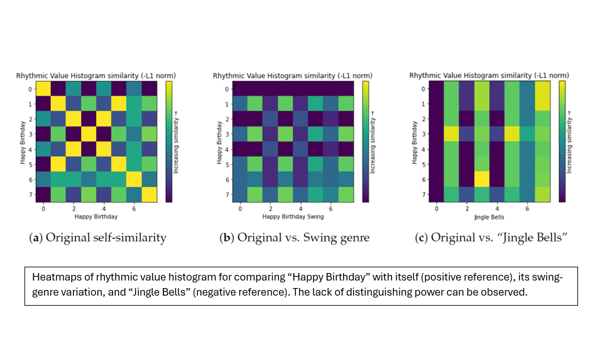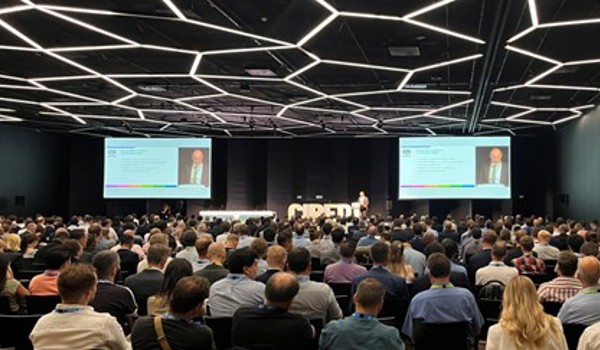08 Aug 2024
Using Weather Forecast Data to Predict Dengue Fever
Skill evaluation of a weather forecast model for specific humidity in Vietnam

Dr Iago Pérez Fernández, Oxford e-Research Centre presenting work at the Centre International des Conférences on the Météo-France in Toulouse on an early warning system for dengue in Vietnam
The problem is that because the climate conditions are changing, this results in new habitats for mosquitoes and this disease can therefore spread more easily.
“The mosquito that transmits dengue needs warm and humid conditions to thrive, so anticipating the development of those conditions would give us an idea of the areas in which a dengue outbreak would be more likely.”
We are aiming to use weather data to see in which area the mosquitoes will be able to develop and thrive.
“But first we need to study how accurately the weather forecast can represent the variables linked to Dengue incidence, and for how many days we can use the data until the weather forecast is no longer reliable. We define it as statistical meteorology - the analysis of weather and climate data using different techniques such as applied statistics, statistical tools or artificial intelligence. In my case, I am assessing how good the weather forecast is at predicting variables such as temperature or precipitation. I expect to contribute to the development of an app to predict Dengue outbreaks in Vietnam, so the damage done by this disease can be reduced”
After my work is completed, we should know how far ahead we can predict the weather conditions that enable the mosquitoes to thrive. We then combine these with past observations to assess areas in which to expect a dengue outbreak in the near future.
Iago presented his research at the 15th International Meeting on Statistical Climatology (IMSC) in Toulouse in June this year. “It was important to share the results of my study and also to meet other people who are using and analysing the weather forecast. They gave me new perspectives, and ways to improve the research and to make the analysis better. For example, they recommended using some coefficients in my study to test the accuracy of the weather data, for example, a coefficient which quantifies how well the forecast model predicts very high or low values of a variable as we go further forward in time. It was a very good experience; I received a lot of useful feedback and have a couple of good ideas that I want to try out.”
This work was done was supported by the Dengue Advanced Readiness Tools (DART) project funded by the Wellcome Trust, in which researchers from the University of Oxford collaborate with the University of Science and Technology of Hanoi and Vietnam’s National Institute of Hygiene and Epidemiology in Hanoi.
- Contact Dr Iago Perez
- Iago Perez Research Profile
- X.com @IagoPerezFern
- Podcast: Can you make a dengue fever forecast?





